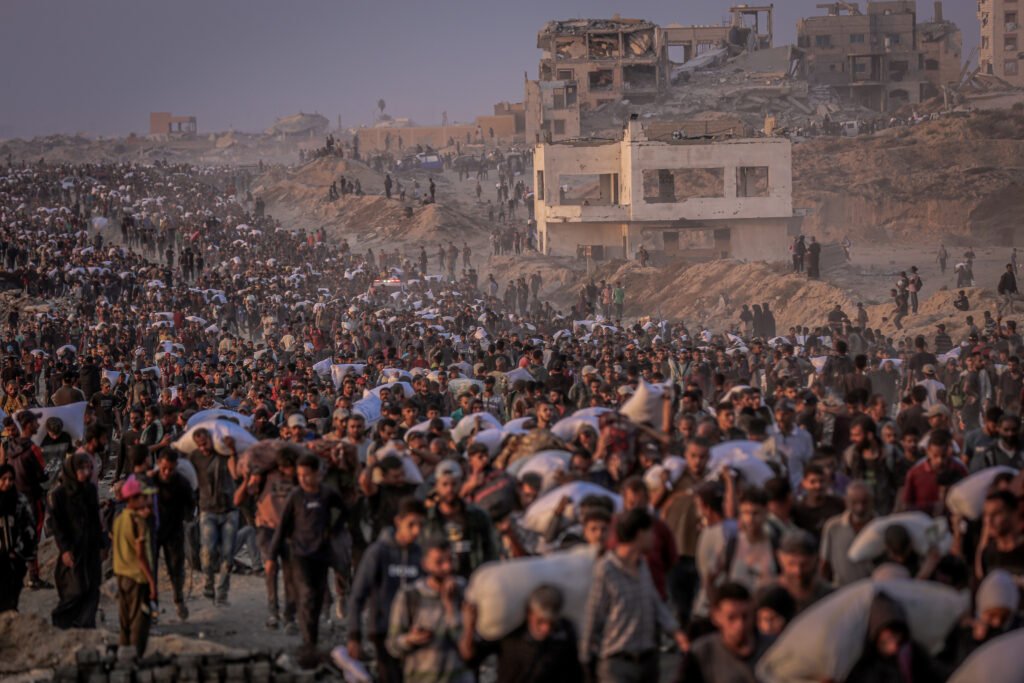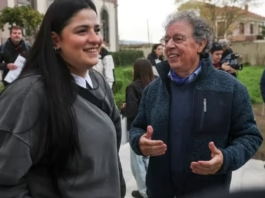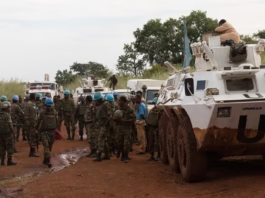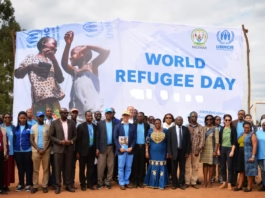
The Dire Humanitarian Situation in Gaza
The humanitarian situation in Gaza is increasingly alarming, characterized by a rapid deterioration of living conditions for its residents. According to reports from various humanitarian organizations, including the United Nations, the civilian population has faced severe consequences due to ongoing military operations. The statistics are staggering: thousands of civilian casualties have been recorded, with a significant proportion being women and children, who are particularly vulnerable during such conflicts.
This situation is further compounded by the blockade and restrictions on movement, which hinder the delivery of much-needed humanitarian aid. Medical facilities are overwhelmed, with testimonies from health officials indicating that they are struggling to cope with the influx of injured civilians. Hospitals are urgently calling for supplies, such as medical equipment and medications, which are essential for treating the wounded. The lack of adequate medical resources is especially detrimental in a region already beset by high rates of poverty and unemployment.
Officials and aid workers on the ground have voiced their concerns, underlining the urgent need for humanitarian intervention. The psychological toll on Gaza’s residents cannot be overstated, particularly for children who experience not only the physical dangers of conflict but also the emotional and mental strain of living in a war zone. Reports of increased incidents of trauma, anxiety, and depression among young individuals are becoming more prevalent. As schools remain closed and families find themselves in precarious living conditions, the longer-term implications for mental health in the region grow more concerning.
In light of these dire circumstances, the international community faces mounting pressure to advocate for peaceful resolutions and support crucial humanitarian efforts aimed at alleviating the suffering of Gaza’s population. The need for assistance has never been more urgent, emphasizing the critical importance of a ceasefire to enable effective humanitarian response and provide relief to those in desperate need.
Calls for an Immediate Ceasefire
In light of the escalating humanitarian crisis in Gaza, numerous international leaders and organizations have made urgent appeals for an immediate ceasefire. The ongoing hostilities have led to significant loss of civilian life and have severely hampered the delivery of critical humanitarian assistance. Recognizing the dire situation on the ground, these calls for a ceasefire are not only pivotal but also imperative to ensure the safety and well-being of the civilian population.
Khaled Khiari, a prominent figure in international diplomacy, has been vocal in advocating for an immediate halt to hostilities. He emphasizes that without a ceasefire, humanitarian agencies face insurmountable challenges in delivering aid to those most in need. According to Khiari, it is crucial that all parties involved in the conflict prioritize the protection of civilians and guarantee safe passages for humanitarian efforts. His perspective reflects a broader consensus among leaders who argue that a ceasefire is essential not just for immediate relief, but also to create a conducive environment for negotiations towards lasting peace.
International bodies such as the United Nations have echoed these sentiments, calling for an end to violence and urging all parties to engage in dialogue. The recognition of humanitarian law is paramount, and leaders stress that aims of military objectives must not overshadow the protection of human rights. It is through a cooperative effort, emphasizing ceasefire agreements and respect for civilian safety, that the cycle of violence can be disrupted. Each call for a ceasefire serves as a reminder of the collective responsibility to prioritize human dignity in the face of conflict and crisis.
Accusations of Intentional Starvation and Violence
The ongoing humanitarian crisis in Gaza has prompted serious allegations regarding the intentional starvation of the Palestinian population, alongside broader patterns of violence perpetrated against civilians. Reports indicate a harrowing rise in malnutrition cases, with children being particularly vulnerable to this grim reality. Various humanitarian organizations have documented a surge in health issues stemming from food shortages, with statistics revealing that a substantial percentage of children in Gaza are currently suffering from acute malnutrition. These dire conditions have raised alarm bells within the international community, prompting urgent calls for intervention and support.
Palestinian representatives have vocally condemned what they describe as a systematic strategy of deprivation, attributing the accountability of such actions to Israeli military forces. These representatives argue that the tactics employed result not only in widespread suffering but also in the loss of countless innocent lives. Eyewitness accounts and testimonies from individuals affected by the ongoing conflict paint a troubling picture of daily life in Gaza, illustrating the painful realities faced by families trying to survive amidst escalating violence.
Moreover, the allegations of intentional starvation are underscored by a significant lack of access to essential resources, including food, medical supplies, and clean water. Human rights organizations emphasize that these actions appear to be part of a broader military strategy aiming to weaken the Palestinian population. The consistent reports of indiscriminate violence, coupled with allegations of obstructing humanitarian aid, paint a disturbing landscape of a crisis that has provoked urgent international response calls. As the plight of Gazans deepens, the predicament merits thorough examination and discourse to foster awareness and advocate for a rapid resolution to alleviate the systemic suffering. Such a comprehensive understanding of the crisis is essential for fostering dialogue and moving toward sustainable peace.
A Call to Action: The Role of the International Community
The ongoing humanitarian crisis in Gaza necessitates an urgent and coordinated response from the international community. It is imperative that nations come together to address this dire situation, not only through diplomatic negotiation but also by reinforcing existing legal frameworks that advocate for peace and humanitarian support. A collective effort can facilitate a ceasefire, which is essential for delivering much-needed aid to the affected population.
Diplomatic solutions must be prioritized, urging influential nations and international organizations to engage in proactive dialogue aimed at resolving the conflict. Global summits and conferences should serve as platforms for discussing actionable strategies, bringing together diverse perspectives that could pave the way for a sustainable peace agreement. Such gatherings provide opportunities for stakeholders to collaborate and develop cohesive plans that genuinely address the root causes of the crisis.
Moreover, the importance of establishing accountability mechanisms cannot be overstated. The international legal framework provides a vital foundation for addressing violations of humanitarian law. By ensuring that those responsible for war crimes and breaches of international norms are held accountable, efforts towards lasting peace are significantly strengthened. This accountability can also foster an environment where stakeholders are more likely to engage in constructive dialogue.
In light of current events, it is crucial that the international community not only reacts but also proactively shapes the discourse surrounding the ongoing conflict in Gaza. Concretely supporting initiatives aimed at peace and humanitarian aid will reflect a renewed commitment to uphold human rights and alleviate suffering. By integrating these collaborative approaches within the existing framework of international law, a pathway toward lasting peace in the region can be achieved, ultimately leading to a brighter future for the people of Gaza.



